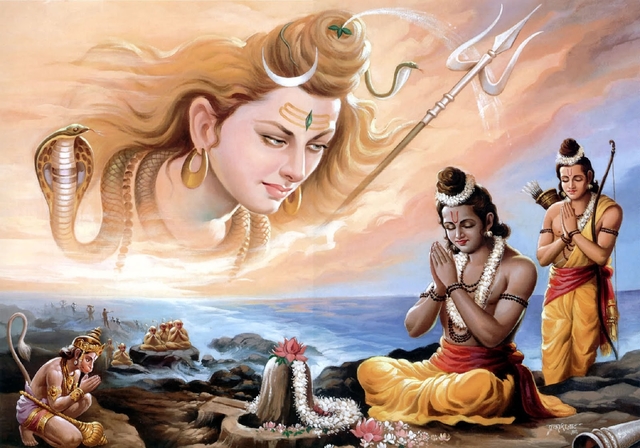
Shivaratri (Siwaratri) holds great significance in Hinduism, denoting a sacred day dedicated to Lord Shiva.
This Sanskrit term combines "Shiva," representing the revered deity, and "ratri," meaning "night." Thus, Shivaratri translates to "the night of Shiva" or "Shiva's night". Annually celebrated in honor of Lord Shiva, this Hindu festival is marked by fasting, prayer, and meditation throughout the night.
Shivaratri serves as a profound moment for introspection, allowing individuals to contemplate their sins with the aim of achieving self-awareness. During this period of reflection, people evaluate their actions and seek guidance from Shiva to purify themselves of wrongdoing.
Key activities observed during Shivaratri include:
- Mejagra, the night vigil, commences in the evening or at night and extends until dawn or early morning.
- Upawasa, fasting, typically begins at sunrise and lasts until the following sunrise, constituting a 24-hour period.
- Monabrata, the vow of silence, lasts for a specified duration, often from sunrise to sunset or for 12 or 24 hours, though it may not always coincide with the fasting period.
To decide which activities to undertake during Shivaratri, individuals can consider the three levels of observance in Hinduism: nista, madya, and utama. These levels signify varying degrees of commitment to religious practices, allowing individuals to choose based on their capabilities.
At the Nista level, individuals typically engage in basic rituals like Mejagra.
At the Madya level, practitioners immerse themselves in more extensive rituals, which may include both Mejagra and Upawasa.
At the Utama level, individuals undertake the most comprehensive set of rituals, incorporating Mejagra, Upawasa, and Monabrata.
Following the completion of Shivaratri rituals, believers conduct prayers seeking divine blessings and forgiveness. Their aspirations include attaining purity, clarity of purpose, and the avoidance of sinful actions.
Shivaratri transcends mere repentance; it's a day for reflecting on past transgressions. Balinese people believe that while the law of karma remains in force, engaging in Shivaratri rituals fosters greater self-control and helps avoid sinful deeds.
You can add one right now!